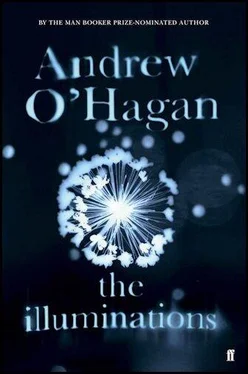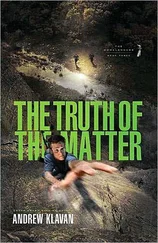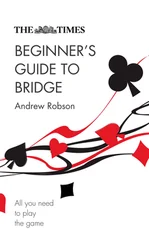She never imagined she’d end up in a place like Lochranza Court, but it had been six years and she was used to it. Her house in Stobbs Crescent had got too big and then a couple of druggies smashed the patio doors one night and stole her television. She was terrified. In the morning there was broken glass all over the carpet and her ornaments were scattered around the garden and
the gate was nearly off its hinges. Maureen remembered looking at all this and seeing that her old life was spoiled. After a few weeks, Esther drove over from Edinburgh to try bringing a bit of calm to the situation. She could see the point of a new house but not an old people’s home.
‘It’s not a home,’ Alex said. There was booze on his breath. ‘Get a grip, Esther, it’s not a home. It’s retirement housing.’
‘That’s right,’ Ian said. Esther knew the matter was settled when Ian backed the plan. (Ian worked with computers, as Maureen often liked to remind them. By this she meant he was always likely to be right. ‘And he keeps up his annual membership at the gym.’)
‘It’s sheltered housing accommodation,’ Ian said. ‘She’ll have a door onto the street, like a normal person. But the other door goes into the complex, where all the people can have breakfast together. There’s a warden. It’s safe. And there’s a tropical plants area.’
‘People die in there,’ Esther said. ‘Every day. And she’s only sixty-two.’
‘What’s dying?’ Alex said. ‘People die every day all the time.’
Ian made a face like he couldn’t understand what was wrong with people. ‘What?’
‘Everybody dies.’
‘Not if they look after themselves, they don’t.’
‘It’s a home,’ Esther said. ‘I’ve got patients, Ian, and I’ve seen what happens when they give up. They dwindle. And Mum’s prone to depression. She’s been closing down her life since we were teenagers. She’s gone from marital crisis to infirmity without a break in between, and that makes me sad, Ian, because I’d always hoped for a bit of optimism. A bit of hope. Just once to see our mother happy.’
‘You know everything,’ Ian said. ‘Keep that shit for your patients, Esther. She’s not asking for gold. She wants to be safe at night and this place is the answer.’
Maureen never heard the details of this argument, but Alex later gave her a few clues and it upset her to think of them not getting on. She didn’t want the boys being too hard on Esther just because she was different. Esther had a lot on her mind and she sometimes blamed people, that was her problem, and you have to remember, Maureen noted, that Esther wasn’t too happy in her own life, not nearly as happy as she liked to think, and she sometimes took it out on other people. It was only natural. When you had a big job like Esther’s, people could expect too much. That’s right. Esther was her own worst enemy.
On her way back from the Spar, hugging the milk, Maureen saw the street lights switching off. In winter it was often dark when she went out and getting light as she returned. She liked the sudden change of atmosphere and the sense of a new day beginning. Only when she went to cross the road to Lochranza House did Maureen spot the fire-engine and notice that smoke was escaping from an open window. Jackie the warden was standing out in the car park with a clipboard, the elderly residents gathered around in their dressing-gowns.
‘Jesus, Mary and Joseph, what’s the matter?’ Maureen said, putting the milk down on a bench.
‘It’s Mr MacDonald in 29,’ Jackie said. ‘Burnt the toast again.’
‘Oh dear,’ Maureen said.
‘Evacuation.’
‘Heaven help us,’ said Mrs Souter from flat 24. ‘Is this what they call an evacuation?’
‘It has different meanings,’ Jackie said.
Anne was sitting on the bench. There was a suitcase at her feet and a smile on her face. ‘It’s not that bad,’ she said, looking at the sea. ‘Beautiful lines over there, don’t you think?’ Maureen had wandered back to pick up the milk she’d left on the bench. ‘It’s all nice when you stop and frame it,’ Anne went on, ‘the people and the horizon and everything. If we wait long enough we’ll see the
Waverley
sailing past.’
NATURAL LIGHT
One day Anne asked for an outing and Maureen took it upon herself to see that the trip went well. It was a constant battle in Maureen’s head, the wonder of central heating versus the benefit of fresh air, but she was happy to do all the zipping and buttoning required for a walk into town. Ian dropped in on his way to work to change a light bulb in his mother’s airing cupboard. ‘What are you up to today?’ he asked. ‘Going down Shenanigans for a few pints with the biddies?’
‘That’ll be right,’ Maureen said. ‘It’s too cold to go out. Plus there’s nowhere to go.’
‘Really? You could go to the pictures. If I wasn’t working I’d go to the pictures every day.’
‘It’s too dear,’ she said. ‘Plus you have to go to Kilmarnock and all the films are about sex or blowing people up.’
‘Awesome,’ he said.
‘Plus, I am working. That living room won’t vacuum itself and the plants out there are begging for water. Somebody’s got to do it and it might as well be me.’
She needed him to think her enjoyments were few and far
between. But after Ian left she went in to help Anne choose a dress and a coat and sensible shoes that would grip. Anne talked about the clothes that once belonged to her aunts who had lived in Glasgow: ‘Atholl Gardens. Number 73. I’m talking about a place with fourteen rooms,’ Anne said. ‘You don’t get houses like that nowadays.’
‘Was it nice?’ asked Maureen.
‘I’m talking rheumatism. Varicose veins. And chests of drawers full to overflowing with corsets and what have you.’
‘You should wear a cardigan under your coat.’
‘There were six floors. The moths had a great time and God knows how many coats they ate.’
‘Put your scarf on.’
‘A scarf’s like a friend, isn’t it?’
Maureen smoothed Anne’s hair. ‘I was always telling them to get rid of stuff,’ Anne added. ‘But they wouldn’t, Maureen. They couldn’t bear to get rid of so much as a pair of stockings.’
‘Is that right?’
‘My father was never out of the church. That was before Glasgow, mind you. In Canada. He was looking for God, up there in the church. My mother didn’t keep well. She had the disease that makes you shake. She stayed in her bed and I think she died in that bed.’
‘In Canada?’
‘That’s right. I was young then.’
The rabbit sat on the sofa with a tea towel tied around him and Anne stopped to look over.
‘I think we’ll leave him behind today,’ Maureen said. Anne offered no argument but said again that she had been a child in Canada, something about ice on the road to Dundas.
Anne sometimes looked at things and you felt she was developing a picture in her mind’s eye. ‘That was the old bathing pond,’ she said, measuring the light as they walked into town. ‘And I think rock ’n’ roll groups used to play there in their suits — the Marine Theatre.’
‘Groups? I don’t think so.’
‘All the girls would scream,’ Anne said. After a few more steps, they stopped. ‘Don’t let me miss the post again today.’
‘What?’
‘The post. I always send a cheque. Never miss it. They’ll be waiting for a cheque in Blackpool.’
This was a mystery to Maureen. She’d heard Anne speak before about people in Blackpool who were waiting for money. She mentioned it on the phone to Anne’s daughter, Alice, who just sighed and said she didn’t want anything to do with it. It was clearly a part of Anne’s life that was off-limits or stuck in the past, but the dementia was bringing it out and Maureen wanted to know more, in case she could help.
Читать дальше











